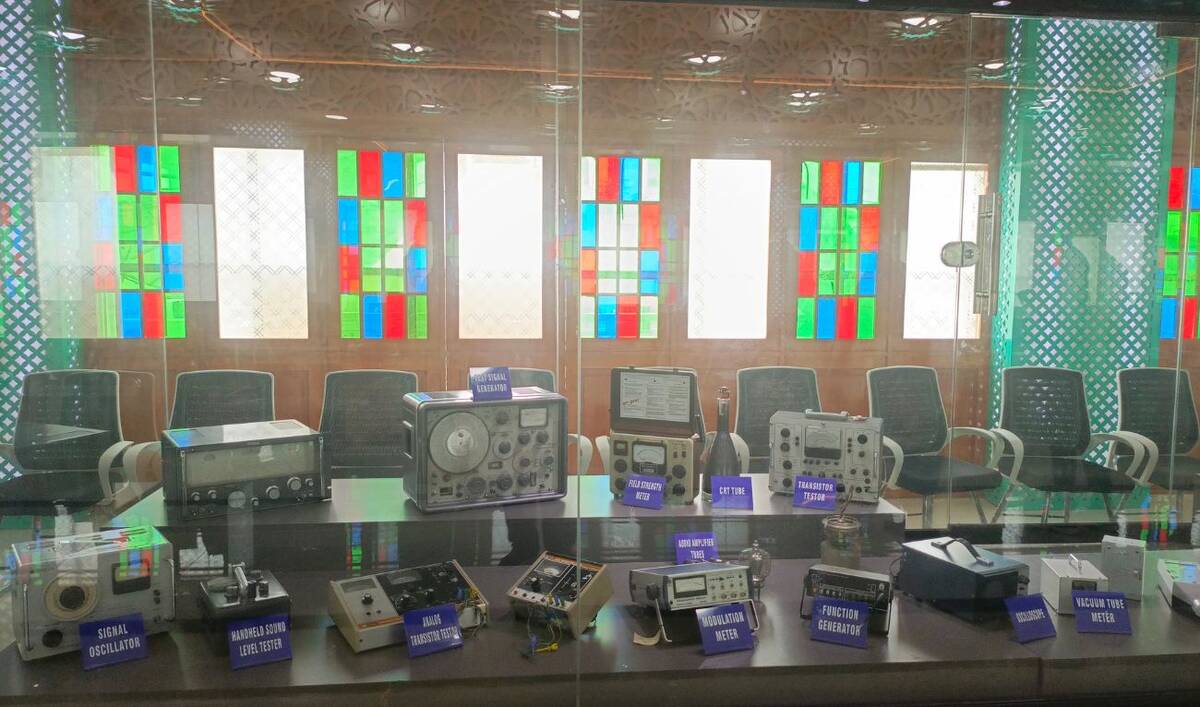KARACHI: Pakistan’s national currency on Thursday witnessed its biggest fall in a single day in over 24 years, as it depreciated by over 9 percent against the US dollar, as Pakistan moves to meet the International Monetary Fund's (IMF) conditionalities to resume a stalled $7 billion bailout program, dealers and analysts said.
The rupee closed what transpired to be one of the most volatile trading sessions of the year at Rs255.43 against the greenback. The national currency witnessed massive depreciation of around 9.61 percent, or over Rs24.53 in the interbank market, according to data released by the State Bank of Pakistan.
Pakistan's rupee previously saw such a massive single-day depreciation back on October 26, 1998, when it depreciated by 9.9 percent against the US dollar, according to Arif Habib Limited research.
“The much-awaited PKR adjustment has been done today by allowing banks to quote rates based on market demand-supply,” Muhammad Sohail, CEO of Topline Securities, told Arab News.
Sohail said this was also the case till September 2022 when the bank rate was kept in a narrow band that gave rise to the black market. He expects the move will now pave the way for the revival of the stalled IMF program.
“Now the black market rate will come closer to the bank rate," he said. "This will help in increasing exports and inward remittances through the banking channel. This may also help in reviving the delayed ninth review with the IMF and inflows from friendly nations," he added.
During the intra-day trading, Pakistan's rupee plunged as low as Rs259.75 for selling and Rs254.75 against the greenback as Pakistani authorities apparently allowed the currency to adjust itself according to the market demand and supply requirements.
The currency also recorded a massive free fall in the open market where it depreciated by Rs19.4 to Rs260 for buying and Rs19 to Rs262 for selling against the greenback, according to the Exchange Companies Association of Pakistan (ECAP).
The ECAP said late on Tuesday it was lifting the cap on the currency in the interest of the country.
Moving away from the managed exchange rate to free float was meant to discourage the prevailing three different rates to assess the dollar's value: the state bank’s official rate, the one assessed by the foreign exchange companies and the black market rate.
“Today was a historic day for the open and interbank market as the currency devaluation has made a fresh record,” ECAP Secretary General Zafar Sultan Paracha told Arab News.
However, he said the move could not discourage the black marketing of the dollar. Paracha said exchange companies were already selling the dollar to banks through credit cards at Rs255, indicating that the currency was likely to depreciate to this level.
The move toward a market-based exchange rate takes Pakistan one step closer to the revival of a stalled bailout program as it is one of the conditions that the IMF has set before it agrees to unlock more funds. Previously, against IMF advice, Finance Minister Ishaq Dar has tried to defend the rupee, including currency market intervention.
Pakistan’s national currency has been under immense pressure due to a higher demand for import payments amid a forex crisis, with reserved held by the central bank now falling to $4.6 billion, barely enough to cover three weeks of imports.
The low reserves have compelled the government to restrict the import of goods, including industrial raw materials, to stop dollar outflows, while commercial banks have stopped issuing letters of credit (LCs), leaving importers struggling to arrange the greenback for already placed orders.
Analysts said the IMF wanted Pakistan to use a market-determined exchange rate rather than keep it artificially managed.
“IMF wanted Pakistan to have market-determined rates, electricity and gas tariff hikes, and a minibudget as preconditions to revive the stalled program,” Tahir Abbas, Head of research at Arif Habib Limited, told Arab News.
“Today’s move seems that the country is meeting IMF conditions. It is now expected that the fund program will be resumed next month.”
Analysts said the move to further liberalize the currency market would fuel inflation in the country which currently hovers around 24 percent.
“The currency depreciation is likely to fuel inflation in the country and we expect that rate measured by the consumer price Index would hit 30% in the coming months,” Samiullah Tariq, Director Research at Pakistan Kuwait Investment Company, told Arab News.
Pakistani analysts expect the currency depreciation would continue and rupee would likely hit Rs270 against the greenback by end of the current fiscal year.
“We maintain our exchange rate forecast and expect PKR-US$ exchange rate to trade close to Rs270 by June 2023 in the interbank market,” Topline Securities said in its report on Thursday.


















